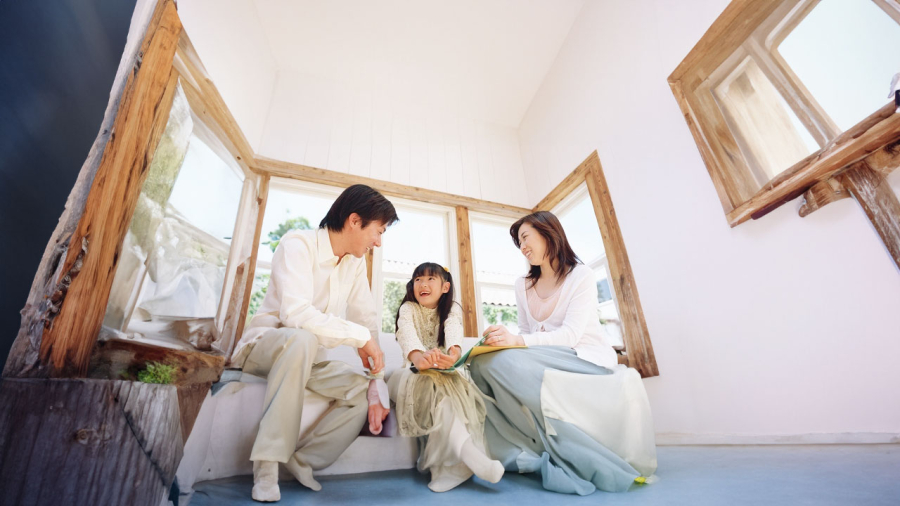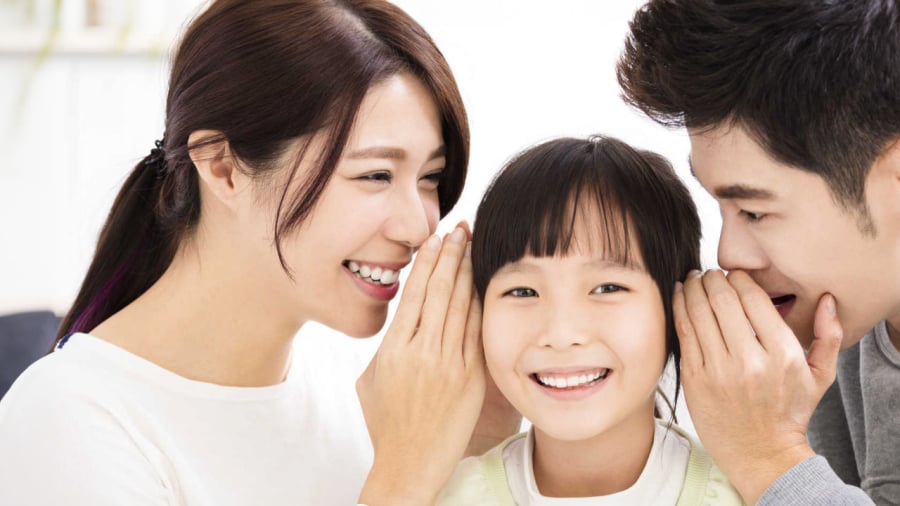If you have a separate room for your child, don’t just barge in, even if you’re planning to tidy up for them. This small action teaches your child a lot.
We used to grow up with the mindset of parents imposing on their children, and the younger the child, the more parents think they have the right to impose on them because it’s for their own good as the children don’t know anything and don’t ask for their opinion.
But now children are increasingly exposed to modern thinking and the rights of freedom and autonomy, which greatly influence their lives. As your child grows older, you need to pay attention to these things. The act of knocking on your child’s door when entering their private room has many meanings:

Show respect for your child, your child understands that, helping EQ improve
Respecting others and not barging in is a basic principle in today’s society. Therefore, even family members need to have boundaries and should not barge into each other’s rooms without permission. This also helps the person in the room to prepare. Moreover, in their private space, when you knock on the door, your child will feel less passive and more respected by their parents. Today’s children live very differently from their parents’ time. They have an awareness of independence early on and want to be respected as independent individuals early on. Therefore, parents need to pay attention to this small action to show respect for their children. This gradually seeps into the thinking and habits of children and will affect their emotional intelligence (EQ). When they grow up and go out, these things will be appreciated and respected by others.

Maintain harmony in the family and help your child develop better
When parents enter a room without knocking, it can be very rude. At that time, the child feels annoyed. Especially when children need more personal space as they grow older, they want their parents to respect that.
Sometimes parents’ actions come from wanting to surprise their child and see what they’re doing in secret. Many children are afraid of being controlled by their parents, but sometimes when they are still young and cannot clearly react or express their own opinions. But for parents to have the habit of not respecting their children is very bad. It makes children feel like they want to stay away from their parents, they hope to grow up quickly to escape from the controlling arms of their parents. So you should create a comfortable environment for your child so they can trust and confide in you and come to you first instead of seeking help from others.
The more you try to control and hold on to your child, the more they will distance themselves from you. That’s why knocking on your child’s door when entering their room is a way to show respect and give your child their own space. This also helps the child respect their parents and love them more. Many people are afraid that their child hides many things, so when their child is sleeping or not at home, they search through their belongings.
That is truly unnecessary if your child is developing normally. When you build trust with your child, they will share more with you. And that is how parents and children harmonize, families share. From there, your child will have a happier future, always feel safe, confident, and love life, without having to be on guard against their own parents.

Encourage independence in your child
When you understand the importance of knocking on your child’s door before entering, it means you will understand it in many other aspects as well. You will see your child as an independent individual, ask for their opinions, give them the right to express their views, and you will be in the role of analyzing, sharing, and advising your child. This way, your child will develop a sense of independence early on, without relying on others, and will have more responsibility. Children who have a sense of responsibility and independence will not hesitate or be afraid and will solve their own problems better, build a strong, independent, and confident life.
Many people blame the fact that because children have their own rooms, they have the opportunity to hide many things from their parents. But the truth is not whether they have a separate room or not, but whether you create a safe environment for your child to share or not, whether your child is afraid or scared of something.














